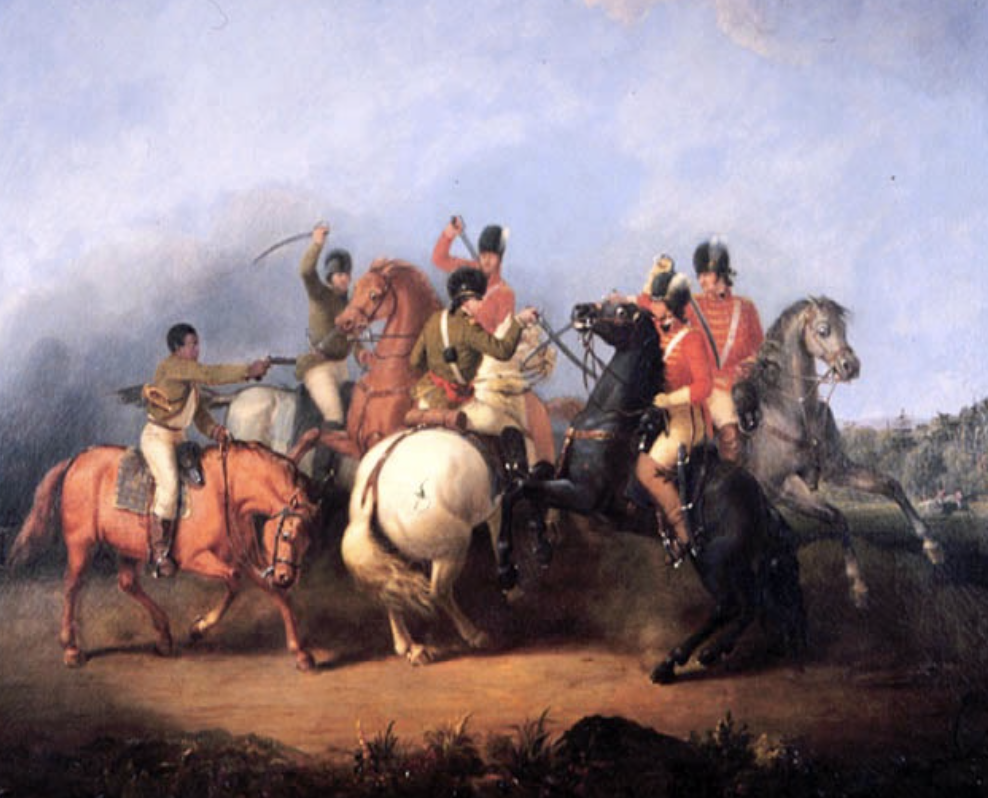The Sovereignty of Conscience by Mark Franke When should one’s conscience have the final say in a dilemma? Or must it answer to a higher authority? And if such a higher authority exists, what is it? Last week I was part of a discussion with a roomful of students enrolled in a seminar focused on the relationship between church and state during the Reformation. These were all graduate students in their fourth year of pre-ministerial study. The focus of the course was the writings of Martin Luther directed to the princes and people of Germany as the Reformation expanded beyond theological debate into the political and military realms. The triggering event was a decision by the Emperor Charles V to apply the military arm of the Holy Roman Empire against those territories, such as Luther’s Electoral Saxony, which had sided with the reformers and against the Roman Catholic Church. The question for the Evangelicals was this: Is it a violation of moral law to take up arms to defend against the imperial army? Luther’s theology emphasized a citizen’s duty to obey the government even when it is evil and persecuting the faithful. This is the Fourth Commandment, to honor one’s parents and superiors. It assumes, perhaps simplistically, that the governmental authority is acting either in accordance with or at least not in violation of moral law. But what if that line is crossed and imperial law contradicts moral law? Who is to be the judge of that? Which leads us back to the conscience. The debate would end here if it weren’t for the fact that one’s conscience is just that, one’s own, and therefore subjective. If given free rein, wouldn’t it lead to complete autonomy of the individual and complete chaos in society? We would be living in Hobbes’ state of nature and probably not living to a ripe old age. Conscience must answer to a higher authority if it is to be employed for the good of society. That higher authority is natural or moral law. We used to be reminded of this when courthouses posted the Ten Commandments in their lobbies until the Supreme Court put a stop to that in 2005. One can still see the Commandments in the Supreme Court building, legally displayed because they are in what is called an “historical context.” It’s comforting to know that “Thou shalt not kill” has a historical context. Assuming a right-guided conscience will align with moral or natural law, what happens when human or positive law conflicts? My classmates spent 30 minutes debating this, citing decisions faced both back in the Reformation era and more recently in American history. Was the American War for Independence justified on the basis of natural law, as the Declaration of Independence claims, or was it an immoral rebellion against legitimate authority? Once independence was declared, was it a citizen’s duty to take up arms and fight? That was no easy question for those new Americans. Here’s a tougher one: Were the Confederate states wrong by moral law to secede to preserve slavery but justified under positive law to resist the invading northern armies? Again, where did the loyalty and duty lie for the small farmers in the south? Does the positive law of their state, legislating secession and armed resistance, trump the moral law against slavery? I’m glad I have never had to face a dilemma like that, but then maybe I did. I was of draft age during the Vietnam War. Was American involvement in that war immoral or just poorly designed policy? It was during this era that the term “conscientious objector” entered the popular vocabulary of the day. A more relevant question exists for us today. Is there a distinction between a government that permits or even encourages evil and one that compels its citizens to act against conscience? State gambling operations are an example of this. The State of Indiana spends a lot of money promoting its gambling programs yet we are free to refuse to buy lottery tickets. By refusing, we resist without rebelling. That may help us sleep at night but what if our neighbor has a gambling problem, one that is being urged on by the state? The past is always a useful teacher for the present so what can be learned from those troubled consciences in the sixteenth century? The Evangelical territories decided they could and should defend themselves militarily. Martin Luther agreed with that decision even though he had preached passive subjection in the past. A line had been crossed; the human law of the Empire placed itself in direct violation of the natural law of God. Conscience spoke clearly to the Evangelical princes, even if it took work to get to that point. The past won’t always give us a plain answer but it can help us formulate the proper questions. The Indiana Policy Review Foundation is a nonprofit education foundation focused on state and municipal issues. It is free of outside control by any individual, organization or group. It exists solely to conduct and distribute research on Indiana issues. Opinions expressed in signed articles do not necessarily represent the views of the editors, the Indiana Policy Review Foundation, or its board of directors. Nothing in this journal, whether in print or pixels, is an attempt to aid or hinder the passage of any bill or influence the election of any candidate. | CONTACT US Indiana Policy Review Foundation PO Box 5166 Fort Wayne, IN 46895Add us to your address book RENEWAL Wednesday Whist | IU at a Crossroads. The desktop version of the most recent journal can be shared directly by clicking the social-network icon at the upper left of the PageTurnPro tool bar of a particular issue. And the journal can be read, searched or forwarded from an iPad, iPhone or other hand-held device through this mobile version. |


